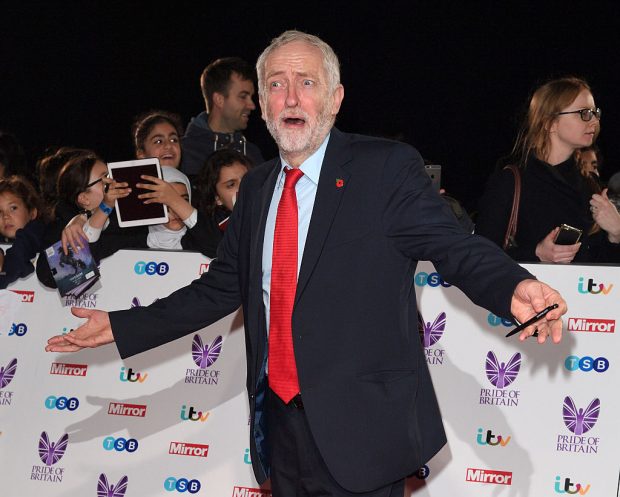Labour’s dire performance in the Sleaford by-election is just the latest sign of a party in terminal decline. To cap it off, a YouGov poll out this week puts them 17 points behind the Tories – their worse showing since the gloomy days of Gordon Brown. Jeremy Corbyn is taking his share of the blame for the miserable state of the Labour party. But for me, the beginning of the end for Labour can be traced back to well before Corbyn. The third of March, 2011, to be precise.
It was on this day the Barnsley Central by-election brought rising Labour star Dan Jarvis into Parliament. As a rookie reporter for the Barnsley Chronicle, I had a front row seat for this political event which, on the face of it, might not have looked particularly unusual. Given this was Arthur Scargill’s home town and Barnsley had dutifully returned a Labour MP in every election since 1935, Jarvis’s win seemed predictable. But the winner of that by-election wasn’t the most interesting takeaway point from that day. Instead, it was the 2,953 votes his Ukip opponent Jane Collins won, which threw everyone as the counts were revealed.
Up until this point, Ukip was still seen as a party wooing only disaffected Tories. But this result – the first time the party had ever come second in a Westminster race – wasn’t supposed to happen in a rock-solid Labour seat. The following year, Collins again came second in the Rotherham by-election, while fellow Kipper Richard Elvin came second – in both Middlesborough, and then in the South Shields seat David Miliband had just vacated. In the 2015 election in Barnsley, Ukip’s share of the vote jumped from 12.2 per cent to 21.7 per cent against Jarvis; and it rose from 4.5 per cent to 23.5 per cent against Michael Dugher in Barnsley East. The cracks were widening.
Some said that Brexit put paid to the appeal of Ukip for good. But the result in Sleaford shows that things aren’t this simple. The National Centre for Social Research released a report this week showing how Labour’s core voters — those in social housing, earning under £1,200 a month, and living in Wales and the north of England — voted overwhelmingly for Brexit. And it’s arguable that some of these Labour leavers are just the voters who jumped ship in Sleaford.
But it’s not just Brexit-backing Labourites that the likes of Dugher and Jarvis should be worried about. There’s an enormous number of previously apathetic voters who now have a taste for blood after striking a massive blow against the establishment. If Paul Nuttall is serious about professionalising his party, and nurtures these voters – as well as Ukip-leaning Labour supporters over the coming years – they could send Labour MPs in supposedly safe seats packing. Or at the very least turn what were ‘safer-than-safe’ seats into marginals.
Barnsley might be on the periphery of many people’s political interests. But what happens here matters for a Labour party which has, for decades, taken locals support for granted. Despite being, broadly speaking, a socially conservative place, many Labour voters here have tolerated Labour’s social liberalism, identity politics, and enthusiasm for immigration for a simple reason: because the party delivered for working people economically. But since Tony Blair, that hasn’t happened. In short the party’s liberal sensibilities have continued to alienate people and the carrot of helpful economic policies has been snatched away. As a result, Labour have hollowed out their base.
Everything has a pre-play, it’s said, and it makes me wonder whether the 2011 Barnsley Central by-election won’t be marked as the beginning of end for Labour by future historians. ‘The Ukip fox is in the Labour henhouse,’ Jarvis quipped last week. Well, to deploy another rural idiom, that’s rather like closing the stable door after the horse has bolted.






Comments